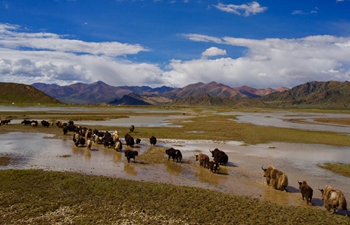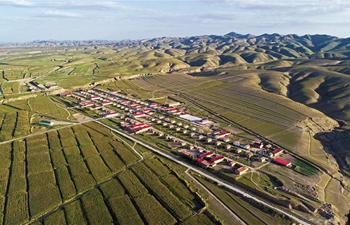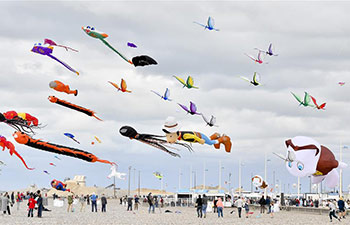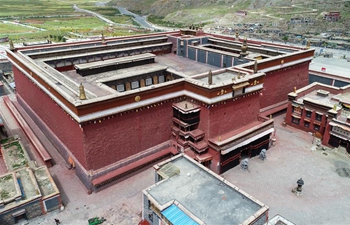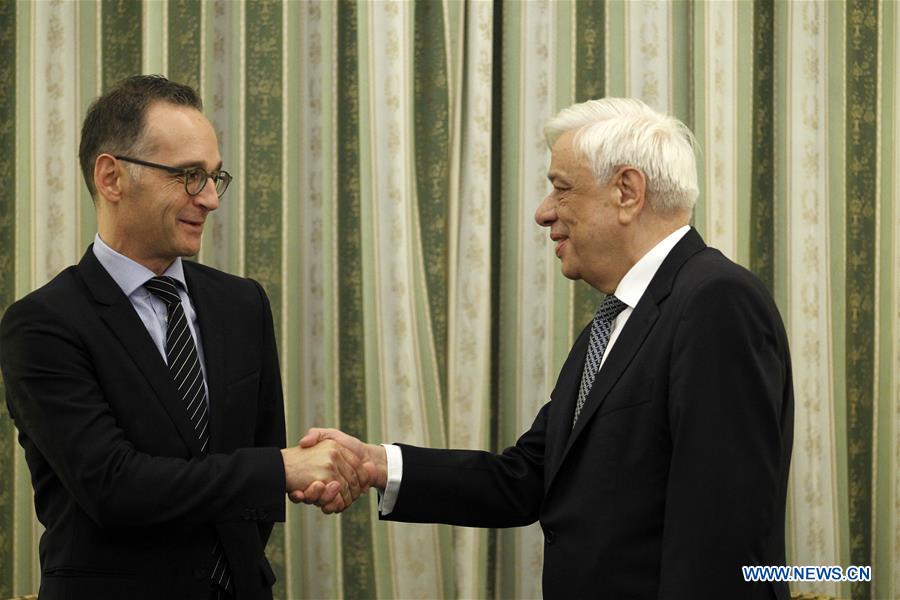
Greek President Prokopis Pavlopoulos (R) welcomes German Minister of Foreign Affairs Heiko Maas in Athens, Greece, on Sept. 20, 2018. (Xinhua/Marios Lolos)
ATHENS, Sept. 20 (Xinhua) -- Greece and Germany support a stronger common EU foreign and security policy, Greek President Prokopis Pavlopoulos and visiting German Minister of Foreign Affairs Heiko Maas said here on Thursday.
"Your visit coincides with the informal EU summit in Austria and the agenda of this meeting I think that highlights how important is the issue of strengthening the pillar of the EU's Foreign and Security Policy," Pavlopoulos said while welcoming Maas.
"We do have the institutional framework. Inaction in front of what is happening in the wider area is unacceptable. We should not leave this pillar weak, when it comes to the common foreign policy ... as well as in issues of security. The refugee issue is of existential significance for the European Union, as I have said many times," the Greek leader stressed, according to an e-mailed press release.
"I agree with what you have said Mr. President regarding the common Foreign and Security Policy which is very important for us and a challenge," the German minister said on his part.
"It is important to seek a solution to the migration issue with all partners assuming responsibilities. Maybe not all sides assume the same weight, but one cannot only talk about the rights that come with EU membership and seek them and in parallel setting aside the obligations," he added.
On the agenda of separate talks with Greek foreign minister Nikos Kotzias on Thursday were also efforts to strengthen bilateral ties and developments in the western Balkans and the eastern Mediterranean, the two ministers said in joint statements to the press.
"We support the Prespes agreement... Stability and security (in the Balkans) is our common goal," Kotzias said, according to Greek public broadcaster ERT, referring to the agreement the Greek government reached with Skopje authorities in June to end a long-standing dispute over the use of the term "Macedonia".
Maas who visited also Skopje and Tirana before arriving in Athens talked about a "historic opportunity" to strengthen stability in the region by solving the issue.
The German minister also praised Greek people for the difficult battles they gave in recent years to exit the acute debt crisis which started in late 2009.
The country exited on Aug. 20 this year the third of the bailout programs implemented to address the crisis.
"We are confident that Greek economy will continue on the path of recovery," Maas said.



